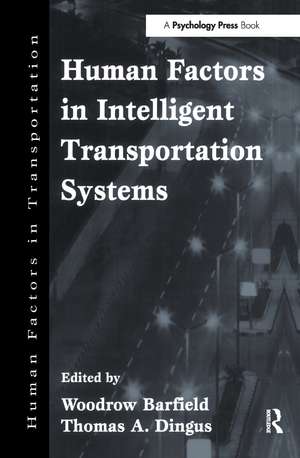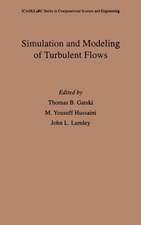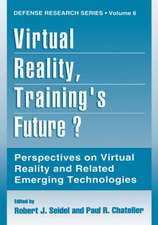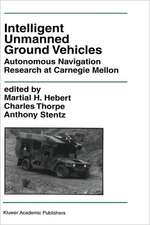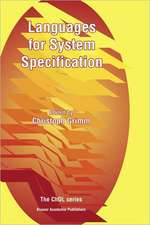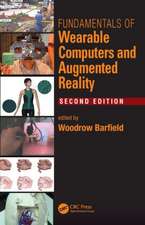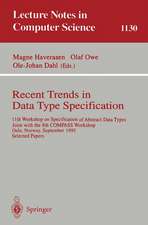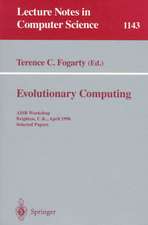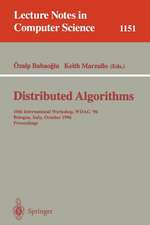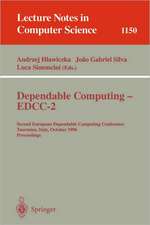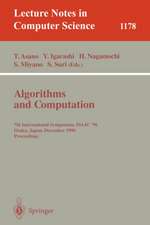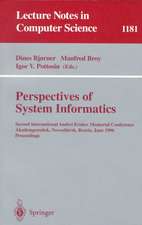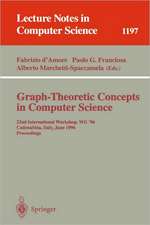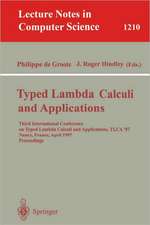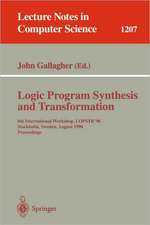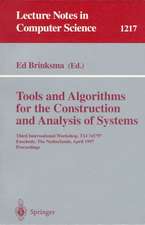Human Factors in Intelligent Transportation Systems
Editat de Woodrow Barfield, Thomas A. Dingusen Limba Engleză Hardback – noi 1997
ITS applies advanced information processing, communication, sensing, and computer control technologies to the problems of surface transportation. Considerable research and development efforts will be required to produce these new technologies and to convert technologies developed in the defense and space programs to solve surface transportation problems.
ITS has been subdivided into six interlocking technology areas. This book addresses human factors concerns for four of these areas:
* Advanced Traveler Information Systems are a variety of systems that provide real time, in-vehicle information to drivers regarding navigation and route guidance, motorist services, roadway signing, and hazard warnings.
* Advanced Vehicle Control Systems refer to systems that aid drivers in controlling their vehicle particularly in emergency situations and ultimately taking over some or all of the driving tasks.
* Commercial Vehicle Operations address the application of ITS technologies to the special needs of commercial roadway vehicles including automated vehicle identification, location, weigh-in-motion, clearance sensing, and record keeping.
* Advanced Traffic Management Systems monitor, control and manage traffic on streets and highways to reduce congestion using vehicle route diversion, automated signal timing, changeable message signs, and priority control systems.
Two technical areas are not specifically addressed in individual chapters, but many aspects of them are covered in associated chapters:
* Advanced Rural Transportation Systems include systems that apply ITS technologies to the special needs of rural systems and include emergency notification and response, vehicle location, and traveler information.
* Advanced Public Transportation Systems enhance the effectiveness, attractiveness and economics of public transportation and include fleet management, automated fare collection, and real-time information systems.
| Toate formatele și edițiile | Preț | Express |
|---|---|---|
| Paperback (1) | 424.61 lei 6-8 săpt. | |
| Taylor & Francis – oct 1997 | 424.61 lei 6-8 săpt. | |
| Hardback (1) | 853.32 lei 6-8 săpt. | |
| Taylor & Francis – noi 1997 | 853.32 lei 6-8 săpt. |
Preț: 853.32 lei
Preț vechi: 1040.63 lei
-18% Nou
Puncte Express: 1280
Preț estimativ în valută:
163.28€ • 177.92$ • 137.59£
163.28€ • 177.92$ • 137.59£
Carte tipărită la comandă
Livrare economică 23 aprilie-07 mai
Preluare comenzi: 021 569.72.76
Specificații
ISBN-13: 9780805814330
ISBN-10: 0805814337
Pagini: 480
Ilustrații: Illustrations
Dimensiuni: 152 x 229 x 34 mm
Greutate: 0.93 kg
Ediția:1
Editura: Taylor & Francis
Colecția Psychology Press
Locul publicării:Oxford, United Kingdom
ISBN-10: 0805814337
Pagini: 480
Ilustrații: Illustrations
Dimensiuni: 152 x 229 x 34 mm
Greutate: 0.93 kg
Ediția:1
Editura: Taylor & Francis
Colecția Psychology Press
Locul publicării:Oxford, United Kingdom
Public țintă
ProfessionalCuprins
Contents: Series Foreword. Preface. T. Mast, Introduction to ITS. M.C. Hulse, T.A. Dingus, W. Barfield, Description and Applications of Advanced Traveler Information Systems. J.D. Lee, B.H. Kantowitz, Perceptual and Cognitive Aspects of Intelligent Transportation Systems. T.A. Dingus, S.K. Jahns, A.D. Horowitz, R. Knipling, Human Factors Design Issues for Crash Avoidance Systems. W.A. Wheeler, J.L. Campbell, R.A. Kinghorn, Commercial Vehicle-Specific Aspects of Intelligent Transportation Systems. L. Levitan, J.R. Bloomfield, Human Factors Design of Automated Highway Systems. M.J. Kelly, D.J. Folds, The Advanced Traffic Management Center. F. Mannering, Modeling Driver Decision Making: A Review of Methodological Alternatives. J.H. Spyridakis, A.E. Miller, W. Barfield, Usability Evaluation for Intelligent Transportation Systems. R.N. Fleischman, T.A. Dingus, Human Factors Participation in Large-Scale Intelligent Transportation System Design and Evaluation. L. Ng, W. Barfield, J.H. Spyridakis, Survey Methodologies for Defining User Information Requirements. L. Ng, W. Barfield, Determining User Requirements for Intelligent Transportation Systems Design. T.A. Dingus, M.C. Hulse, W. Barfield, Human-System Interface Issues in the Design and Use of Advanced Traveler Information Systems. F.H. Landau, M.N. Hanley, C.M. Hein, Application of Existing Human Factors Guidelines to ATIS.
Recenzii
"This excellent, well-integrated survey of current knowledge of human factors in intelligent transportation systems (ITS) is authoritatively written by many different experts....Excellent chapters are provided on advanced traveler information systems (ATIS), crash avoidance systems, commercial vehicles, automated highway systems, traffic management centers, and survey and modeling methods for evaluating the design and usability of ITS systems. A valuable, comprehensive presentation of existing human factors guidelines relevant to the design of ATIS systems is also provided. The subject and author indexes and bibliography are extensive and first-rate."
—CHOICE
"...the book is full of interesting information that should be useful also to designers of intelligent transportation systems outside the United States. "Human Factors in Intelligent Transportation Systems provides a useful and broad overview of the subject and may serve as both a introduction to the field as well as reference for the expert."
—Intelligence
—CHOICE
"...the book is full of interesting information that should be useful also to designers of intelligent transportation systems outside the United States. "Human Factors in Intelligent Transportation Systems provides a useful and broad overview of the subject and may serve as both a introduction to the field as well as reference for the expert."
—Intelligence
Notă biografică
Woodrow Barfield, Thomas A. Dingus
